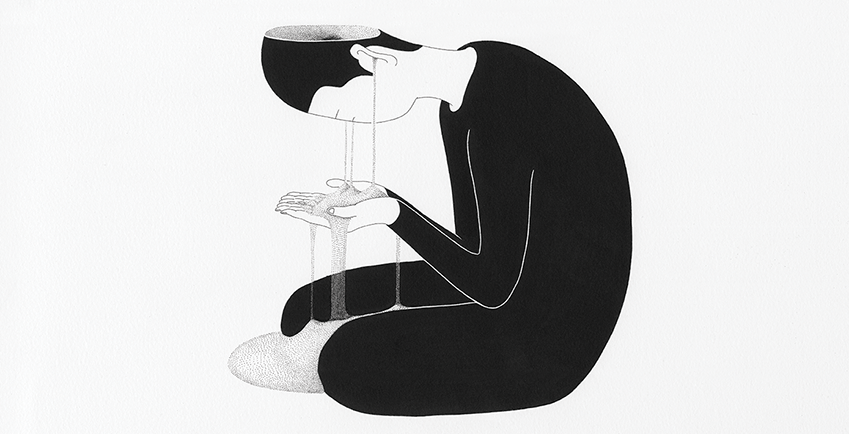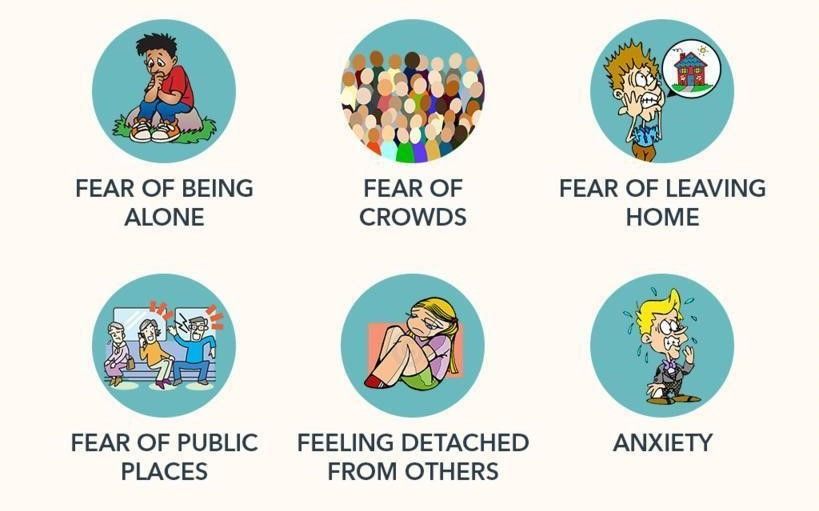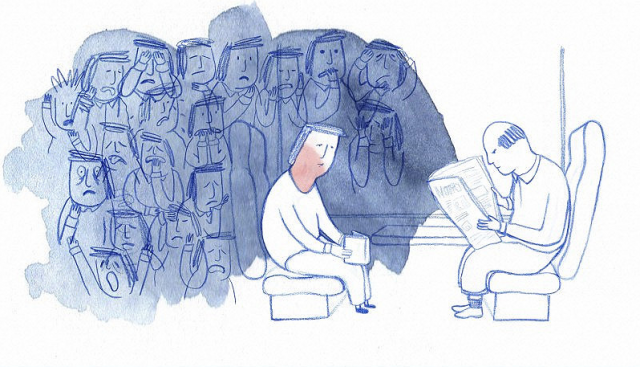VIRTUAL EMDR BLOG
Depression and Sadness Aren’t the Same Thing
12 Feb 2019
![]() Tag: Depression
Tag: Depression

Depression is very common and serious mental medical condition which affects millions of people. It can lead to emotional, cognitive, behavioral, and physical problems and can decrease a person's ability to function at work, at school, and at home.
But are you depressed? Or are you just going through a sad time in your life? This short test from the American Psychiatric Association Depression Test can help you find out.
Depression can stem from difficult life events, such as the loss of a loved one or a trauma, also people sometimes can feel miserable or depressed without knowing why. Additionally, depression, especially in midlife or older adults, can co-occur with other serious medical conditions, such as diabetes, heart disease, Parkinson's disease, and even cancer. Sometimes medications taken for these illnesses may cause side effects that lead to depression and when depression is present, the condition gets even worse.
If you think you are depressed, you should talk to your doctor, consider seeing a therapist, or try at-home therapies like the Virtual EMDR Eye Movement Therapy Program.
What is the Difference between Depression and Sadness?
It is important to realize that being sad or upset from time to time is a normal part of life because difficult life events happen to everyone. However, depression is more serious and is characterized by prolonged feelings of sadness and hopelessness which causes a person to lose their interest in daily activities and to decrease his or her ability to perform normal life activities.
Sadness is usually triggered by a specific event, experience, or situation. So we tend to be sad for something. Otherwise depression doesn't necessarily require a specific event, or situation so when we're depressed, we feel sad for everything. In addition while sadness is an emotion, depression is a medical condition.
American Psychiatric Association Depression Test
The following Depression Test will only take you about 2 minutes to finish. Every question has 2 answers, yes or no. You must think over the last 2 weeks while answering them and every 'yes' answer means 1 point. Please use a sheet to write your answers on. Let's get started!
Do you usually get angry, irritated, or aggressive easily? (Y/N)
Have you felt sad or tearful for a majority of the day? (Y/N)
Have you been feeling more pessimistic or negative than usual? (Y/N)
Do you see no future for yourself? (Y/N)
Have you ever had a feeling of emptiness? (Y/N)
Do you often feel extremely tired without apparent reason? (Y/N)
Do you feel guilty, or worthless because of the things happened? (Y/N)
Have you lost your interest or pleasure in doing activities? (Y/N)
Do you feel lonely or withdrawn from the world? (Y/N)
Do you feel that life is not worth living? (Y/N)
Have you ever thought of suicide? (Y/N)
Did you drink/eat too much, or use drug, or try dangerous activities recently? (Y/N)
Have you lost your interest in sexual activity? (Y/N)
Have you been bothered by losing concentration and/or difficulty in completing tasks? (Y/N)
Have your thoughts/acts gotten slower? (Y/N)
Is it difficult for you to fall asleep most nights to the point that you do not get adequate sleep and are tired the next day? (Y/N)
Do you feel you sleep a lot more than you should because of feeling fatigued most of the day? (Y/N)
Do you wake up early in the morning and find you can’t go back to sleep? (Y/N)
Recently, have you gained a lot of weight or lost a lot (not due to dieting)? (Y/N)
Have you gotten any pain without a medical reason? (Y/N)
Is there any digestive problem, or cramp in your body? (Y/N)
What Does Your Score Mean?
The higher score you get from this test, the higher probability you have depression.
You may also have additional symptoms because there are different types of depression.
Types of Depression
Major Depression: It lasts at least 2 weeks and most of the days going with depressed mood, irritability, loss of joy, and decreased function at working/studying.
Dysthymia: A depressed mood lasts for at least 2 years. A person diagnosed with dysthymia may have major depression episodes along with periods of less severe symptoms.
Seasonal Affective Disorder: It is generally characterized by the onset of depression during the winter months, when there is less natural sunlight.
Atypical Depression: Depression includes the ability to temporarily be cheered by happy events, increased appetite, sensitivity to rejection, and heaviness in limbs.
Bipolar Disorder: It is different from depression however it includes the depressive periods, named 'bipolar depression'. Additionally, a person with bipolar disorder experiences a high euphoric or irritable moods (mania) and less severe periods (hypomania).
Psychotic Depression: It occurs when a person experiences psychosis with depression such as hearing/seeing something others cannot see, or delusions.
Postpartum Depression: It includes the time pregnancy and after giving birth, going with a mild depressive and anxious mood, also exhaustion.
Premenstrual Dysphoric Disorder: It involves depression symptoms associated with hormonal changes which begin a week before and improve within a few days after the onset of period, and gone after the period is over.
After reading this, if you suspect on that you might experience depression, you should contact a doctor or mental health professional as soon as possible. Depression is a medical problem that requires long-term treatment because you cannot simply get rid of it. And depression can get worse in time if it isn't treated. However, if you take a treatment (therapy, medication, rescheduling your daily routine, taking supplements etc.) you'll feel better in time.
One option is EMDR (Eye Movement Therapy). EMDR is highly effective method to reduce the impact of past events that lead to depression. The aim of EMDR is to desensitize the negative emotional burdens of past events which the person gets stuck, then strengthen the person's contact with positive emotional capacity in which he or she is unable to connect due to his or her depression. In fact, this is a process that the human brain does automatically but since the brain of a depressed person cannot perform this procedure, negative emotions cannot be desensitized so the negative impacts go on.
If you want to give it a try, you can use Virtual EMDR Program online. All plans include a30-day money back guarantee and you can try Virtual EMDR free for three days. You can sign up here!
Don't be late for a better life!
REFERENCES
Cagliostro, D. (2018, 28 September). Depression. Retrieved from https://www.psycom.net/depression.central.html
Erol, Z. (2014, 12 August). Depresyonda EMDR. Retrieved from http://www.zehraerol.com/depresyonda-emdr/
Higuera, V., & Holland, K. (2018, 6 December). Everything You Want to Know about Depression. Retrieved from https://www.healthline.com/health/depression
Mayo Clinic Staff (2018, 3 February). Depression (Major Depressive Disorder). Retrieved from https://www.mayoclinic.org/diseases-conditions/depression/diagnosis-treatment/drc-20356013
Parekh, R. (2017, January). What is Depression? Retrieved from https://www.psychiatry.org/patients-families/depression/what-is-depression
The National Institute of Mental Health (2018, February). Depression. Retrieved from https://www.nimh.nih.gov/health/topics/depression/index.shtml#part_145398
Winch, G. (2015, 2 October). The Important Difference Between Sadness and Depression. Retrieved from https://www.psychologytoday.com/us/blog/the-squeaky-wheel/201510/the-important-difference-between-sadness-and-depression
Test was adapted from:
American Psychiatric Association. (2013). Diagnostic and statistical manual of mental disorders (5th ed.). Washington, DC.
https://www.depression-helper.com/depressiontest.htm
https://allpsych.com/tests/diagnostic/depression/
Be the first to comment.









View Comments